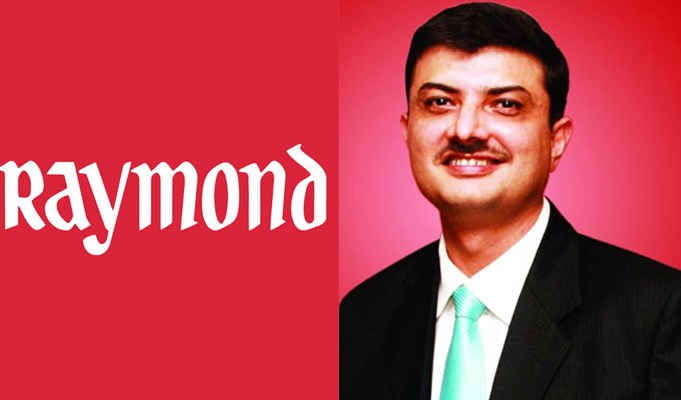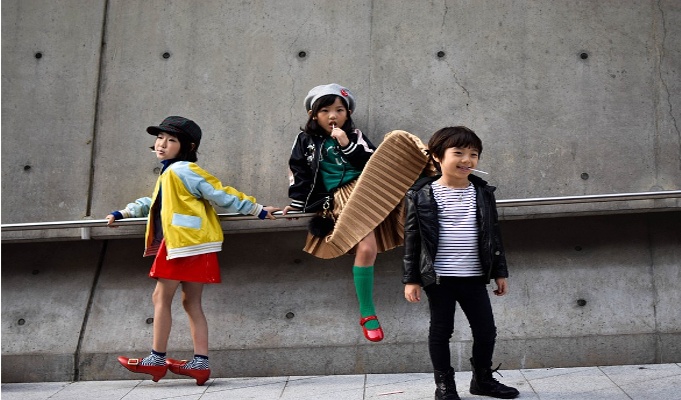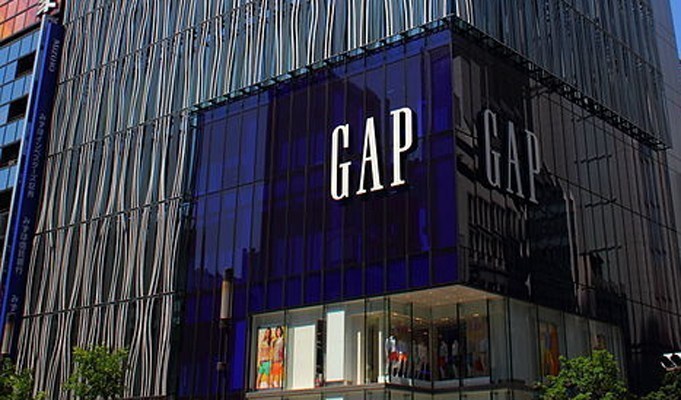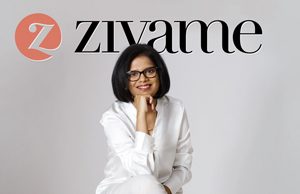PepsiCo, Inc. announced that it has entered into an agreement to acquire Rockstar Energy Beverages, the popular energy drink maker, for US$ 3.85 billion.
“As we work to be more consumer-centric and capitalize on rising demand in the functional beverage space, this highly strategic acquisition will enable us to leverage PepsiCo’s capabilities to both accelerate Rockstar’s performance and unlock our ability to expand in the category with existing brands such as Mountain Dew,” said PepsiCo Chairman and CEO, Ramon Laguarta. “Over time, we expect to capture our fair share of this fast-growing, highly profitable category and create meaningful new partnerships in the energy space.”
Rockstar, founded in 2001, produces beverages that are designed for those who lead active lifestyles from athletes to rock stars. Rockstar products are available in over 30 flavors at convenience and grocery outlets in over 30 countries. PepsiCo has had a distribution agreement with Rockstar in North America since 2009. In addition to Rockstar, PepsiCo’s energy portfolio includes Mountain Dew’s Kickstart, GameFuel, and AMP.
“We have had a strong partnership with PepsiCo for the last decade, and I’m happy to take that to the next level and join forces as one company,” said Russ Weiner, Rockstar’s Founder and Creator of the world’s first 16oz energy drink. “PepsiCo shares our competitive spirit and will invest in growing our brand even further. I’m proud of what we built and how we’ve changed the game in the energy space.”
PepsiCo has also entered into an agreement, which will provide approximately US$ 0.7 billion of payments related to future tax benefits associated with the transaction, payable over up to 15 years. PepsiCo does not expect the transaction to be material to its revenue or earnings per share in 2020. The transaction is subject to customary closing conditions, including regulatory approval, and is expected to close in the first half of 2020.
Centerview Partners LLC acted as financial advisor to PepsiCo. Gibson, Dunn & Crutcher LLP acted as lead counsel to PepsiCo, and Davis Polk & Wardwell LLP as U.S. tax and antitrust counsel. Goldman Sachs & Co. LLC acted as financial advisor to Rockstar, with King & Spalding acting as Rockstar’s legal counsel.
PepsiCo to acquire Rockstar, expand presence in energy drink category
Samosa Singh announces pilot association with Reliance Smart
Indian snacking startup Samosa Singh announced its pilot association with Reliance Smart Superstores to bring India’s favorite snack to its shoppers. The association is part of the ongoing efforts by Samosa Singh to expand its consumer presence in modern trade stores through delivering exciting innovation and snacking experience, alliances and Reliance Smart is the perfect collaboration in that direction.
Both Reliance Smart and Samosa Singh aim to offer value for money yet premium offerings and experiences that are aligned to the needs and sensibilities of their core audience. This shared school of thought is the foundation of this association. Samosa Singh is excited about piloting the association in a few stores in Bangalore and expand the association gradually across stores. This association will introduce Reliance Smart visitors to a tailor-made menu offering an array of delicious Indian street foods and samosas including Samosa Singh favourite, Masala corn samosa and achaari aaloo stuffed kulchas.
Speaking on the association, Shikhar Veer Singh, Co-founder & CEO says, “Our aim has always been to appeal to the masses and for them to enjoy Samosa with the convenience of being available anytime anywhere. This association helps us further our goal of reintroducing the new generation to Samosa, a snack Indians have relished across generations.”
“Samosa Singh was born from a simple realisation – in India, leisure time and snack foods are both inextricably linked to the country’s cultural fabric. Also snacking post a shopping haul is something every customer looks forward to. With our presence at SMART Superstore, we are thrilled to reach out to so many customers, by presenting them with India’s favourite snack in a variety of options,” says Nidhi Singh, Co-founder & COO, Samosa Singh.
Samosa Singh was founded in 2016, with the objective of reinventing the king of Indian snacks – the samosa – and presenting it to customers in new and exciting ways. Samosa is a snack that holds a very special place in the Indian snacking industry. It creates a sense of nostalgia and a feel-good experience for its consumers. By elevating the familiar joyful experience, Samosa Singh has helped the preferred local snack come a long way from its humble street food origins. With this association Samosa Singh aims to bring its variety of offerings to consumers who enjoy snacking on the go, especially during shopping.
“Citizen Customers expect modern, interesting, food ideas from a platform like SMART Superstore. Food in India, is full of exciting possibilities. Providing a platform to an innovative start up like Samosa Singh comes naturally to Reliance Smart. I am said it will add one more reason that makes shopping at SMART, more interesting,” says Damodar Mall, CEO, Grocery Retail, Reliance Retail.
Samosa Singh currently operates in Bengaluru and Hyderabad, with plans to establish and consolidate its presence in South India.in the coming year. It has partnered with leading national brands such as INOX, PVR Cinemas, and Café Coffee Day, among others. In 2019, Samosa Singh entered into strategic partnerships with multinational retailers for the launch of its ready-to-eat and ready-to-cook samosa ranges. Samosa Singh recently opened its flagship outlet at Bangalore International Airport.
Raymond's CEO for lifestyle business steps down
Sanjay Behl, Chief Executive Officer for lifestyle business at fashion and textile retailer Raymond Ltd, has decided to step down from his current role after serving for seven years.
“This development is a natural transition as we are in the process of forming a new company that is focused on lifestyle business as part of the demerger process at Raymond Group,” the company said in a statement.
“While we are in the process to appoint a new CEO, Behl has agreed to help in the transition and a seamless handover.”
Raymond Group announced the demerger recently and has already initiated the process of completing formalities for listing the new lifestyle entity Raymond Lifestyle Ltd.
The lifestyle business through a new listed company will have the existing business of branded textiles, branded apparel and garmenting.
“Raymond is managed by a strong team of professionals and we are confident of hiring the best-in-class CEO for the proposed listed entity as we embark on a new phase of transformation at Raymond Reimagined,” said Gautam Hari Singhania, Chairman and Managing Director.
Raymond is India’s largest integrated worsted suiting manufacturer that offers end-to-end solutions for fabrics and garmenting.
It has some of the leading brands within its portfolio — Raymond Ready to Wear, Park Avenue, ColorPlus, Parx, Raymond Made to Measure among others.
Raymond has one of the largest exclusive retail networks in the country with over 1,500 stores across 601 towns.
Gap Inc. names Sonia Syngal Chief Executive Officer
Gap Inc. announced that its Board of Directors has named Sonia Syngal, an accomplished retail leader and CEO of the portfolio’s Old Navy business since 2016, as the company’s next Chief Executive Officer, effective March 23. She will also join the Gap Inc. Board of Directors. As Gap Inc.’s new CEO, Syngal’s top priority will be strengthening the performance of the portfolio.
“To lead the company into its next chapter, we sought a dynamic leader who could bring a deep respect for our customers and make the decisions necessary to deliver value from our portfolio of brands over the long term,” said Bob Fisher, interim Gap Inc. CEO and current chair of the Gap Inc. Board of Directors. “Sonia has all of the characteristics and experiences needed to effectively execute against the work ahead. She is an excellent operator who drives innovation and decisive action, and she leads with both vision and heart.”
“It’s an honor to build on this company’s rich heritage and lead our nearly 130,000 employees in transforming our business and operations to successfully compete in the future,” said Sonia. “I’m committed to fully realizing the potential of our portfolio and the advantage of our scale, with a focus on strengthening the love that our millions of customers have for our brands. To do that, we must better prioritize initiatives and capabilities that will improve execution and drive value creation.”
The company also announced that Board member Bobby Martin will take the role of Executive Chairman, effective March 23. Martin has extensive experience in the retail world, having served as president and CEO of Wal-Mart International, as a former director at Dillard’s Inc., and as a member of the Gap Inc. Board of Directors since 2002. His experiences will serve as a strong complement to Sonia’s, as they position the company to deliver value to our customers, employees and shareholders.
Two New Members to Join Gap Inc.’s Board of Directors: Elizabeth Smith and Amy Miles.
The company also announced the election of two new members to serve on its Board of Directors, effective April 1.
Elizabeth Smith is the former CEO of Bloomin’ Brands, where she drove efforts to adapt to the changing consumer landscape by redefining convenience for the casual-dining segment. In addition to her work leading the Bloomin’ Brands portfolio, revitalizing the company’s core brands domestically and internationally, she also served in senior positions at Avon Products and with Kraft Foods. She currently serves as a director for Bloomin’ Brands and Hilton Worldwide, and previously served on the boards of Carter’s and Staples.
Amy Miles served as CEO of Regal Entertainment Group beginning in 2009, overseeing one of the world’s largest theater chains until 2018 when the company was acquired by Cineworld. While at the helm, Miles built a reputation as a strong operator and one of the most influential figures in entertainment, as she led the Regal team to compete and grow in an era where streaming entertainment services began disrupting the theater industry. Miles is also an experienced board member, currently serving on the boards of Norfolk Southern Corporation and ASM Global.
Amisha Jain, CEO, Zivame
As the CEO of Zivame, Amisha Jain has always been extremely passionate about building ‘innovation-led’ consumer-centric brand. She is now leading the fastest growing women’s organization for intimate wear and is all set to catapult the business to greater heights.
She is a firm believer of ‘One Team, One Voice’. And this has been her foundation to build teams that are all individually strong and collectively effective at delivering business results.
An alumna of INSEAD and Mckinsey, she has had over 16 years of experience in technology, consumer and retail sectors. Prior to joining Zivame, she was heading the Arvind Sports Lifestyle business and the Digital Centre of Excellence for the Arvind Group. Through the course of her career, she has been leading the growth and transformation initiatives for various multinational consumer goods, and apparel brands.
During her stint as the Head of Sales at Nike, she was also chosen for the prestigious ‘40 under 40: India’s Hottest Business Leaders 2015’ and ‘India Inc’s rising women business leaders 2015’ award by the Economic Times & Spencer Stuart, respectively.
Late deliveries hit bigbasket in Delhi-NCR, users in distress
Arun Kumar who lives on Noida Expressway and a big fan of online grocery company bigbasket has decided to stop using the platform. Reason: Frequent delays in deliveries, late intimation of the delay via SMS or email and sudden disappearance of most of the stuff he ordered in the morning for an evening delivery.
Above all, when he wanted to cancel the order, the online cancellation form put the onus on him — like the customer is not at home, or wants to use coupons, or wants to modify the order — and did not offer any option for cancellation where he could put the blame on the company for late delivery or “last-minute order modification”.
Krishna who lives in Keshav Puram in New Delhi has been facing the same issues for months.
“There have been numerous incidences where bigbasket delivery was delayed beyond the chosen hours. There was no intimation that the delivery will be delayed and I had to wait unnecessarily, cancelling my social engagements,” she told IANS.
Ordered things suddenly going out of stock is normal nowadays on the platform.
“The service has become poor. Hope they improve it else my neighbourhood grocery shop has always been there as they too now deliver groceries at home, that too without a delivery fee,” added Krishna.
The online grocery firm aims to go for an initial public offering (IPO) by 2023. It operates in 26 cities and claims to process over 1.40 lakh orders daily.
But its algorithms are somewhat failing it when it comes to so called “operational constraints”, at least in Delhi-NCR.
“In case of order rush on certain days like a Sunday or a holiday, is it necessary for bigbasket to keep accepting offers, only to inform the customer that most of the items selected are out of stock? Why cannot algorithms gauge the demand-supply scenario in real-time?,” asked an angry Arun.
According to bigbasket, a customer has the option to cancel an order at any point, even at the doorstep.
“If there’s a delay and the customer wants to cancel an order, he/she can reach out to our customer support via chat or phone. In such instances, there are 3 possibilities: a customer may want to cancel, accept (if there’s only a 5-10 minute delay) or shift the order to another time-slot,” a company spokesperson told IANS.
However, the spokesperson did not address the IANS query on why the customer has to take all the blame for the delayed order.
The company claims its on-time delivery has been 99 per cent consistent for several years now.
“Also, in the rare instances of delay, we pay the customer 5 per cent of order value as part of our ‘on-time delivery guarantee,'” the spokesperson added.
Funnily, in the case of Arun who had to wait a whole Sunday evening for the order to arrive, the company paid Rs 8 into his bigbasket wallet on an order of Rs 645 as per its delivery guarantee.
“Is Rs 8 all for spoiling my Sunday evening? I received an SMS at 9 p.m. indicating the delay of an order placed for the 5-7 p.m. delivery slot — that too saying out of the 8 items I ordered, they will not be able to deliver 6 items!,” Arun lamented.
The bigbasket spokesperson said as a back-up mechanism, in case the push notification fails for some reason, “an alert is sent to our customer support team, and they communicate the delay to the customer”.
“Furthermore, at any point in time, customers can reach out to our customer support team via chat/call to know the status of the order”.
This is what exactly Arun did, but to no avail.
“Yes, we do have algorithms to determine ordering quantities in real-time. Our fill rates (items delivered as a percentage of items ordered) are consistently over 98 per cent and we are constantly trying to improve this,” the company spokesperson told IANS.
Amazon India's most desired internet brand: Survey
E-commerce major Amazon is the most desired internet brand in India, followed by Google, according to a TRA Research survey.
Facebook is ranked third for the fifth consecutive time, followed by Zomato at the fourth position. In the fifth and sixth ranks were Google Play Store and Ola. OTT services provider Zee5 makes debut at seventh place.
According to survey, of the 30 brands listed in the internet category, 16 are Indian, 12 the from USA and two from China.
N. Chandramouli, CEO, TRA Research, said, “It’s interesting to see Indian internet brands dominate the list. Due to data democratisation, nearly 34 per cent Indian have easy and cheap availability of data. It has been a phenomenal growth over the last 5 years and has huge potential.”
The brands that offered quality of consistent service, availability and ease of use, seemed to dominate the desire among consumers, he said.
TRA’s Most Desired Internet Brands 2020 includes 10 new entrants, showing swift consumer acceptance and rejection patterns. The new entrants are Google Playstore, ZEE5, Club Factory, Nykaa, AJio, Voot, Netflix, Eros Now, Reliance Smart and TikTok.
Global retail industry venture financing deals total US$ 772.14m in January 2020
Total retail industry venture financing deals in January 2020 worth US$ 772.14m were announced globally, according to GlobalData’s deals database.
The value marked a decrease of 24.6 percent over the previous month and a rise of 9.7 percent when compared with the last 12-month average, which stood at US$ 704.01 million.
Comparing deals value in different regions of the globe, North America held the top position, with total announced deals in the period worth US$ 358.67 million. At the country level, the US topped the list in terms of deal value at US$ 358.67 million.
In terms of volumes, North America emerged as the top region for retail industry venture financing deals globally, followed by Europe and then Asia-Pacific.
The top country in terms of venture financing deals activity in January 2020 was the US with 14 deals, followed by India with five and China with four.
In 2020, as of the end of January 2020, retail venture financing deals worth US$ 772.14 million were announced globally, marking an increase of 45.7 percent year-on-year.
Retail industry venture financing deals in January 2020: Top deals
The top five retail industry venture financing deals accounted for 76.2 percent of the overall value during January 2020.
The combined value of the top five retail venture financing deals stood at US$ 588.3 million, against the overall value of US$ 772.14 million recorded for the month.
The top five retail industry deals of January 2020 tracked by GlobalData were:
– Greenoaks Capital Management, Jackson Square Ventures, Olive Tree Capital, SoftBank Vision Fund II and Zola Global Investors’ US$ 250 million venture financing of Alto
– The US$ 139 million venture financing of Colibri- ManoMano by Eurazeo, General Atlantic, Kismet Holdings, Bpifrance Financement, Piton Capital and Temasek Holdings (Private)
– Alibaba Group Holding, China Create Capital, Joy Capital, Qiming Venture Capital, Strategy Capital and Zhenge Fund’s US$ 88.3 million venture financing of Shihui Group
– The US$ 60 million venture financing of Home Interior Designs E-commerce by EDB Investment, Tahoe Investment Group, KHARIS CAPITAL, Mercer (Singapore) and Nicholas Cator
– Apax Digital Fund, Comerica Bank, New Enterprise Associates, Santo Domingo Family and TriplePoint Capital’s venture financing of Moda Operandi for US$ 51 million.
PUMA signs Bollywood icon Kareena Kapoor Khan new brand ambassador
Global sports brand PUMA has teamed up with Bollywood Icon Kareen Kapoor Khan as its brand ambassador. With this association, Kareena joins the brand’s roaster of dynamic women personalities like Adriana Lima, Selena Gomez, Cara Delevingne, Sara Ali Khan, MC Mary Kom, and Dutee Chand.
Known for her dedicated fitness routine, Kareena will be the face for PUMA’s soon-to-be launched Studio Collection – a low-intensity training apparel collection perfect for Yoga, Barre, and Pilates workouts. Channelling her sartorial workout looks, the collection is sure to keep one moving from the studio to the streets with a practice in style.
“What I connected most with PUMA is that they have always been pushed boundaries, encouraging women to be their unapologetic self. This resonates deeply with me because it’s something I’ve always believed in and followed for myself, whether in my personal or professional life,” said Kareena Kapoor Khan who has been brought on board as the brand ambassador. “This new partnership with PUMA gives me an opportunity to connect with and encourage more women to lead a fit and healthy lifestyle. Fitness is an essential, integral part of my life and I truly enjoy it in its various forms whether its Yoga, Pilates or even just a morning walk. I’m looking forward to everything Puma and I have planned in the coming months.”
Speaking about the association, Abhishek Ganguly, General Manager, PUMA India and Southeast Asia says, “Kareena personifies our philosophy ‘where the gym meets the runway’. She is not only an inspiration but is also a true embodiment of what it means for women to maintain a healthy lifestyle while donning multiple hats. We are thrilled to have her join the PUMA family. Through this association we aim to ignite a stronger women’s narrative for the brand.”
PUMA’s Studio Collection will be available from April 2020 on PUMA.com, PUMA Stores and selected retailers.












